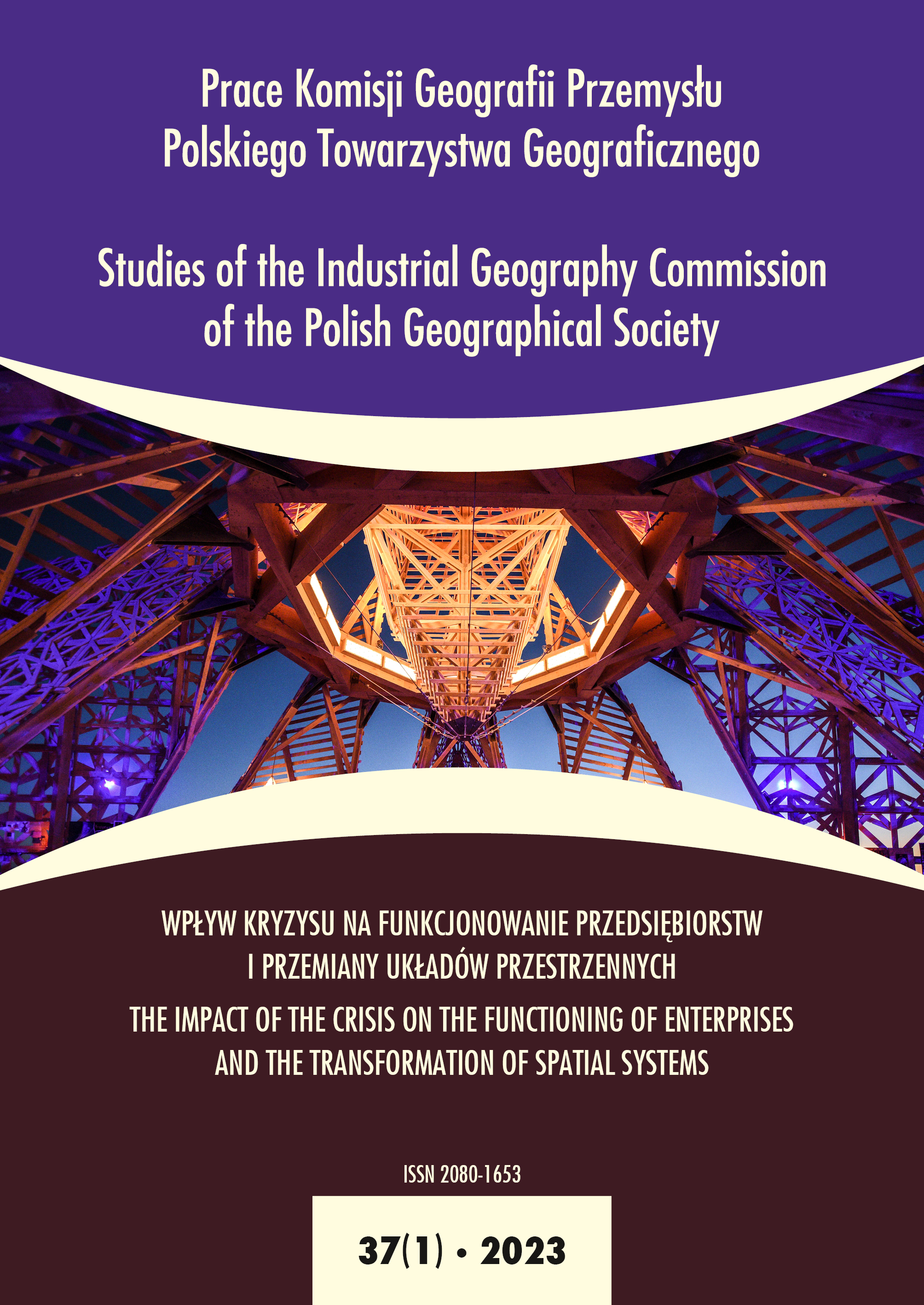Quality costs in historic hospitality during the Covid-19 pandemic. Case studies of Jelenia Góra and Banska Bystrzyca
DOI:
https://doi.org/10.24917/20801653.371.7Keywords:
cooperation, limitations, prices, quality costsAbstract
This publication aims to present the impact of the global Covid-19 pandemic on the quality of management of historic hotel facilities in Poland and Slovakia. A comparative analysis of historical hotels in Jelenia Góra and Banska Bystrzyca was made for publication purposes. The choice made was due to many similarities, including, in particular, the comparable size of both cities, as well as their potential for historical sites. In the theoretical part, the authors showed the specificity of the historical hotel industry in the world and discussed the concept of quality management. To achieve the assumed goals of the work, the authors conducted research in the form of a personal interview with a deliberately selected group of owners and managers of hotel facilities in Jelenia Góra and Banska Bystrzyca. The research sample consisted of about 20 hotels, 10 from each town. The empirical part of the publication presents the results of the conducted research. The research questions concerned the impact of the pandemic on the quality of hotel services and the importance of quality costs in the operation of hotels. The publication was written using compact materials, scientific publications, as well as statistical data and data obtained through a personal interview.
Downloads
Metrics
References
Baláž, J. (2002). Banská Bystrica v premenách času. Banská Bystrica: Baja.
Baláž, J. (2008). Domy starej Banskej Bystrice I. Banská Bystrica: Dali-BB.
Billert, A. (2004). Perspektywy ochrony dóbr kultury w XXI wieku. W: R. Czaja, G. Nawrolska, M. Rębkowski, J. Tandecki (red.), Archaeologia et historia Urbana. Elbląg: Muzeum w Elblągu.
Bombicki, M.R. (1995). Bazar poznański: lata świetności. Poznań: Ławica Polski Dom Wydawniczy.
Burek, R. (2000). Encyklopedia Krakowa. Kraków: PWN.
Chorowska M., Dudziak T., Jaworski K., Kwaśniewski, A. (2009). Zamki i dwory obronne w Sudetach, t. 2, Księstwo Jaworskie. Wrocław: Ibis.
Cieslikowski, K. (2015). Zarządzanie turystyką biznesową. Wybrane aspekty globalne i lokalne. Katowice: Wyd. AWF.
Čuka, P. (2007). Priestorová dynamika infraštruktúry cestovného ruchu v Banskej Bystrici a v jej rekreačnom zázemí, Fakulta prírodných vied UMB, Banská Bystrica.
Gašpar, J. (1988). História turistiky v Košiciach. Košice.
Grabiszewski, M. (2009). Adaptacja budowli zabytkowych na cele hotelowe. W: B. Szmygina (red.), Adaptacja obiektów zabytkowych do współczesnych funkcji użytkowych. Lublin: Wydawnictwo Politechniki Lubelskiej.
Hyski, M., Bednarzak, J. (2012). Funkcje hotelarskie zabytkowych obiektów zamkowych. Katowice: Wydawnictwo AWF.
Kaniewska, B., Cybulski, J. (2014). Kuchnia w pałacach, zamkach, dworach. Warszawa: Globalna Wioska.
Karkonosze.pl (2022, October 5), http:/www.karkonosze.pl/dolina-palacow-i-ogrodow-kotliny-jeleniogorskiej-pl ((Accessed on: 5.10.2022).
Rajko, M., Sala, K., Sadkowski, W. (2022). Quality costs in some European boutique hotels – a case study of Cracow and Zagreb. In: Z. Baracskai, I. Bujan Katanec, & T. Hublin (Eds.), Economic and social development : 81st International Scientific Conference on Economic and Social Development – “Green Economy & Sustainable Development” : book of proceedings. Cakovec: Polytechnic of Medimurje in Cakovec.
Rouba, R. (2001). Hotelarstwo w zabytkowych rezydencjach jako czynnik modyfikujący otoczenie. Łódź: Wydawnictwo Łódzkie.
Sadkowski, W., Jedynak, P. (2022). Quality Management and Accounting in Service Industries: A New Model of Quality Cost Calculation. London: Routledge.
Sala, K. (2018). Zarządzanie hotelarstwem historycznym w Polsce na przykładzie Fundacji Hotele Historyczne Polska (Heritage Hotels Poland). Zeszyty Naukowe Małopolskiej Wyższej Szkoły Ekonomicznej w Tarnowie, 40, 4.
Sala, K. (2020). Praktyczne wykorzystanie i współczesne znaczenie obiektów poprzemysłowych w Polsce na przykładzie hoteli loftowych. Prace Komisji Geografii Przemysłu Polskiego Towarzystwa Geograficznego, 34(3).
Sala, K. (2021). Hotelarstwo unikatowe w Polsce. Uwarunkowania rozwoju. Kraków: Wydawnictwo Naukowe Uniwersytetu Pedagogicznego w Krakowie.
Ševčíková, Z., Obuchová V. (2002). Z histórie hotela Carlton alebo… bol raz jeden hotel. Pamiatky a múzeá, 1.
Tatry Mountain Resorts (2022, September 10), https://www.tmrhotels.com/sk (Accessed on: 10.09.2022).
Downloads
Published
How to Cite
Issue
Section
License
Copyright (c) 2023 Studies of the Industrial Geography Commission of the Polish Geographical Society

This work is licensed under a Creative Commons Attribution-NoDerivatives 4.0 International License.
Articles are published under the terms of the Creative Commons License (CC BY-ND 4.0; Attribution– NoDerivs).

